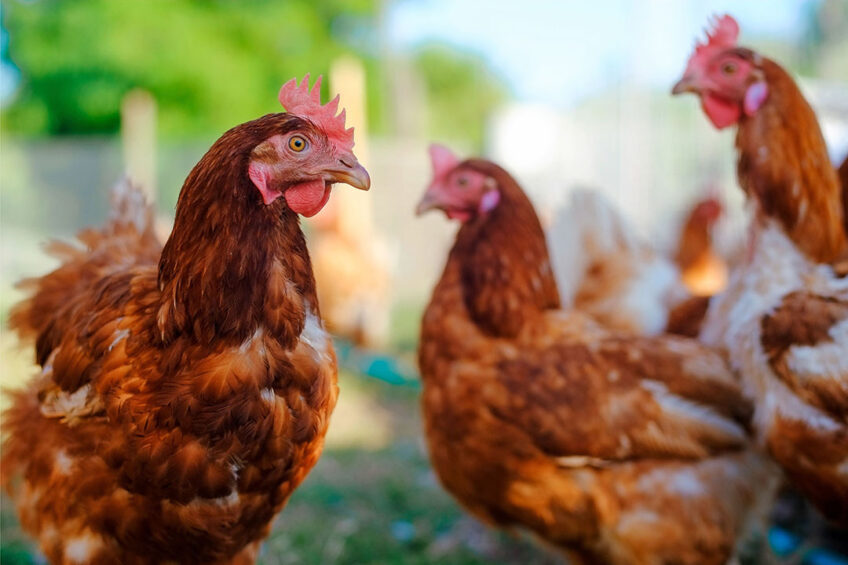Scientists claim gene editing breakthrough in bird flu fight

Scientists have found that alterations to a key gene linked with avian influenza infection can offer partial protection, signalling a path to flu-resistant poultry.
Using gene-editing techniques, they have identified and changed parts of chicken DNA that could also limit the spread of the virus.
Although they were not able to block the virus, they were able to restrict it without any impact on the health or wellbeing of the birds.
Gene editing offers a promising route towards permanent disease resistance, which could be passed down through generations, protecting poultry and reducing the risks to humans and wild birds.
Bred chickens using gene editing techniques
The team, from the Roslin Institute, Imperial College London and the Pirbright Institute bred the chickens using gene editing techniques to alter a section of DNA responsible for producing a protein named ANP32A. During an infection, flu viruses hijack this molecule to help replicate themselves.
Exposing birds to AI virus
When the ANP32SA gene-edited chickens were exposed to a normal dose of the H9N2-UDL strain, 9 out of 10 birds remained uninfected and there was no spread to other chickens. The team then exposed the birds to an artificially high dose to further test their resilience. As a result, half of the 10 birds became infected.
However, the gene edit did provide some protection, with the amount of virus in the infected gene-edited chickens much lower than the level typically seen during infection in non-gene-edited birds. It also helped limit onward spread to just one of the 4 non-gene-edited birds placed in the same incubator. There was no transmission to gene-edited birds.
Although we haven’t yet got the perfect combination of gene edits to take this approach into the field, the results have told us a lot about how influenza virus functions inside the infected cell and how to slow its replication.
Scientists found that in the ANP32A gene-edited birds, the virus has adapted to enlist the support of 2 related proteins – ANP32B and ANP32E – to replicate. Following laboratory tests, scientists found that some of the mutations enabled the virus to utilise the human version of ANP32, but its replication remained low in cell culture from the human airway.
Not yet perfect
The findings, published in the journal Nature Communications, demonstrate that the single ANP32A gene is not robust enough for application in the production of the team. To prevent the emergence of escape viruses, the research team next targeted additional sections of DNA responsible for producing all 3 proteins – ANP32A, ANP32B and ANP32E – inside lab-grown chicken cells. In cell cultures in the lab, growth of the virus was successfully blocked in cells with the 3 gene edits.
Professor Wendy Barclay, of Imperial College London, said: “This work is an exciting collaboration that fuses our expertise in virology with the world-leading genetic capability at the Roslin Institute Although we haven’t yet got the perfect combination of gene edits to take this approach into the field, the results have told us a lot about how influenza virus functions inside the infected cell and how to slow its replication.”
Professor Mike McGrew, study principal investigator at the Roslin Institute, added that vaccination against the virus posed a number of challenges – both practical and cost: “Gene editing offers a promising route towards permanent disease resistance, which could be passed down through generations, protecting poultry and reducing the risks to humans and wild birds. Our work shows that stopping the spread of avian influenza in chickens will need several simultaneous genetic changes.”
The next step will be to try to develop chickens with edits to all 3 genes although no birds have been produced yet.












